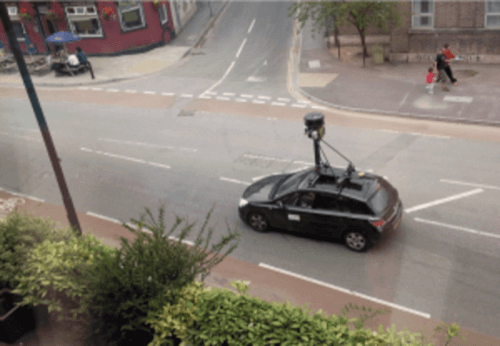Google won’t be resuming its use of Street View cars to collect information about Wi-Fi networks. So says the fine print of the Canadian Office of Privacy Commissioner’s statement today, that as we reported earlier, found that Google had violated Canadians’ privacy.

Google’s Street View project has raised a number of privacy concerns, most notably in May when the company announced that it had mistakenly included code in its Street View software that collected Wi-Fi payload data. Google halted the Wi-Fi data collection, but it was unclear if this was a permanent decision.
In the report issued today, Canadian privacy commissioner Jennifer Stoddart said that the “collection is discontinued and Google has no plans to resume it.” The plans, according to Stoddart, are to rely on users’ smartphones to collect the information on the location of Wi-Fi networks. Google uses this to build out its location-based services database, particularly in those areas with limited celltower strength.

The report does add that “although it has no tracking tool to keep records of a customer’s locations (and does not intend to create one), Google acknowledges that it does need to examine the potential privacy concerns of this method of collection.”
Currently, Google’s mobile privacy policy reads that “If you use location-enabled products and services, such as Google Maps for mobile, you may be sending us location information. This information may reveal your actual location, such as GPS data, or it may not, such as when you submit a partial address to look at a map of the area.”
“With Android, location-sharing is opt-in,” Google spokeswoman Christine Chen tells CNET. “Whether we’re talking about location provider services or individual apps that use location, Android provides users with notice and control over collection of location, sharing of location and use of location to help provide a better mobile experience… We don’t share individual location collected from user devices with any applications or services.”

















